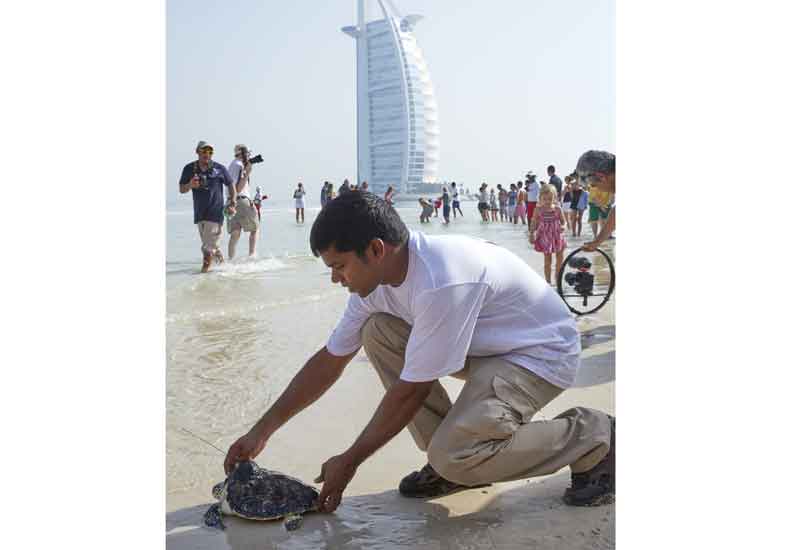Dubai-based Jumeirah group marked World Sea Turtle Day with the release of 45 endangered sea turtles at Burj Al Arab, Jumeirah.
The 45 turtles were rescued from UAE shores and treated by the Dubai Turtle Rehabilitation Project.
The latest release takes the total number of rescued turtles to 800 since the project’s inception in 2004.
Five of the juvenile hawksboill turtles released were recently exhibited at the Dubai Aquarium and Underwater Zoo in Dubai Mall to highlight the threat faced by the endangered species.
Prior to their release into the Arabian Gulf, the turtles were fitted with satellite tags track their progress in the wild and enable to develop a picture of a young turtle’s journey in the region.
Burj Al Arab aquarium operations manager Warren Baverstock said: “We are very proud to celebrate World Sea Turtle Day by releasing more rehabilitated sea turtles back into their environment. We are especially gratefully to the local community and organisations such as the Tourism Development & Investment Company and the Emirates Marine Environmental Group who brought many of the injured turtles to us so we were able to rehabilitate them.

| Advertisement |
“This year, we worked with the Dubai Aquarium team who assisted us with the final stages of rehabilitation of five critically endangered hawksbill sea turtles. Due to the large number of visitors who saw the turtles at the aquarium, we were able to generate greater awareness about turtle conservation.”
Based at Burj Al Arab Jumeirah and Madinat Jumeirah, the DTRP is run in collaboration with Dubai’s Wildlife Protection Office with essential veterinary support from the Dubai Falcon Hospital and Central Veterinary Research Laboratory.
The project accepts any distressed turtles found by the public, but the most common turtles rescued in the Arabian Gulf are the critically endangered hawksbill and the endangered green sea turtle.
The majority of rescued turtles are juvenile hawksbills, which are found washed up on the Gulf coastline during the winter, suffering from the adverse effects of cold sea temperatures. Other common aliments include ingesting plastic rubbish and injuries sustained from boats.









 Search our database of more than 2,700 industry companies
Search our database of more than 2,700 industry companies









